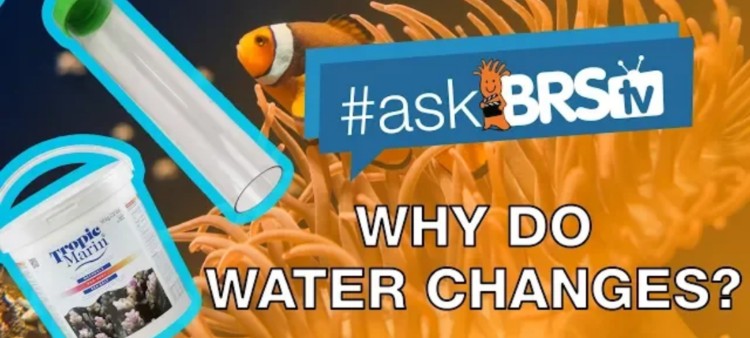Why should you do a water change?
- Apr 18, 2022
- Anshika Mishra
- 180 0 0

One of the most common questions amongst new reefers is, why should we do water changes? So, here is the short and sweet answer to the benefits of doing a water change in your tank.
A percentage of reefers, particularly with older and established tanks, operate on a minimum water change schedule and are doing well. But that is almost a result of a journey that started with a good water change schedule that reduced reliance on them as the tank matured.
However, even with mature tanks, a good schedule for water change can be like an insurance policy against all kinds of chemistry and contaminant that can build over time.
So, these are the reasons that we suggest a good schedule as likely one of the most common elements for success for both that difficult one to two years phase as well as a path to an even more successful ten years plus tank.
Why should you do a water change?
When maintaining or reducing unwanted contaminants like heavy metals, unknown chemicals, or even toxins from the corals, filter or purify fresh salt water to replace the old tank water.
There are a variety of ways contaminants can get into your tanks like:
- residue on your hands
- Contaminants in-tank additives
- Ambient air in the house
- Impurities in the food you fed
All these factors can be mitigated with diluting them with water changes. Also, reefers use regular water changes as an export method to manage unwanted nitrates and phosphates for some, likely with smaller volume tanks.
This may be the only export method needed to keep them within an acceptable level; however, for larger tanks, it is not likely the ideal approach as the primary means of nitrate and phosphate management simply from a dilution and eases or cost standpoint. Still, it can be a substantial part of an overall tank maintenance rhythm.
For those reefers who use two-part for alkalinity and calcium supplementation, if not corrected for overtime, there will be an increase in salinity since salt is the by-product of the new sodium carbonate and calcium chloride.
Water changes are a great way to adjust for the rising salinity to keep the parameters more constant and stable.
Finally, there are some benefits to water changes concerning trace elements, as you are adding some amount of them back into the water depending upon the salt mix. However, in most cases, they are being consumed in larger amounts, and on a long enough timeline, they will most likely deplete beyond what water changes can replenish.
With water changes, it will be slower, more gradual depletion than without doing them at all. Really when it comes down to it, the ultimate goal of water changes is to provide long-term stability in the tank through consistency and purposeful changes to water chemistry over a longer period versus larger swings or shifts, trying to remedy the tank issues.
Proper and regular water changes schedules are more important in the first year tank as younger tanks can be less forgiving in shifting parameters versus a three yeast or older mature tank with a more diverse biological exosphere and mature corals.
Should You Do Water Changes?
If you are new to reefing and asking that question, then absolutely do them and be a part of a reefer with a much higher percentage of success.
However, if you are a pro refer with two to three more years of success and a stable tank, you can consider reducing your water change. But do, be aware that you are also reducing the effectiveness of your insurance policy which has led to its current results.
How Big Should a Water Change Be?
For a vast majority of reefers, smaller consistent water changes will be ideal: 10-15% per week.
Not only are smaller, more frequent water changes easier to do in general, but they also serve another purpose of keeping stable parameters with rather slow changes to water chemistry versus larger, more drastic changes.
However, suppose weekly water changes are more difficult for you to keep up with, or you cannot do them. In that case, it is just fine to try and fit them in every couple of weeks, but you have to account for the longer period of time between changes with larger volume changes with 20% and more.






About author